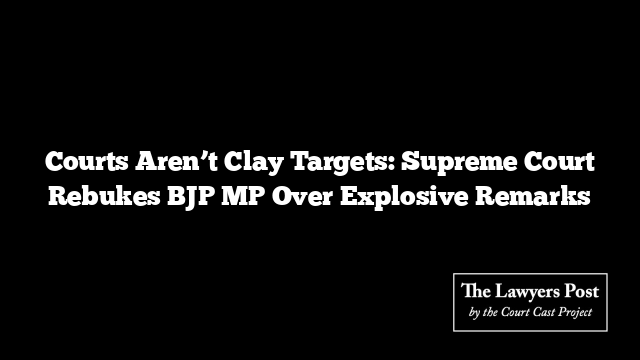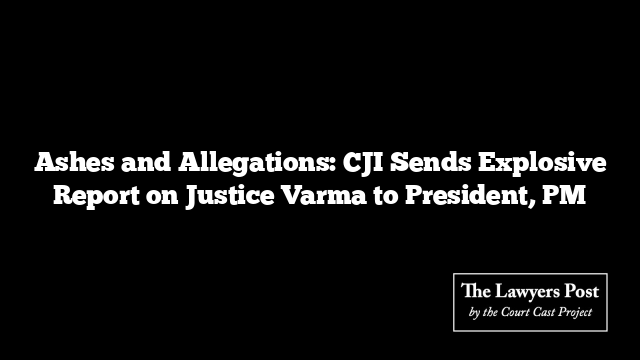The Supreme Court has delivered a blistering takedown of BJP MP Nishikant Dubey, calling out his incendiary claims against the judiciary as a reckless attempt to stir division and delegitimize the constitutional role of courts. In a sharply worded order, the top court made it clear: hate speech isn’t free speech, and disrespect for judicial institutions won’t be allowed to fester unchallenged.
A bench comprising Chief Justice Sanjiv Khanna and Justice PV Sanjay Kumar didn’t mince words. While the Court stopped short of launching contempt proceedings, it dismantled Dubey’s statements line by line, describing them as “highly irresponsible” and “dripping with ignorance.” The MP had accused the Chief Justice of being responsible for “all civil wars in India” in response to a bench-led move to review the Waqf (Amendment) Act, 2025.
“There is no civil war in India,” the Court clarified bluntly, before going on to characterize Dubey’s comments as theatrics aimed at grabbing attention through slander and sensationalism. The bench called it a “deliberate attempt” to shake public confidence in the courts—a line, they implied, that should never be crossed.
Yet, even as it condemned the rhetoric, the Court held its fire on contempt. “Courts are not as fragile as flowers to wither and wilt under such ludicrous statements,” it remarked with a mix of gravitas and grit. Judicial integrity, the Court asserted, doesn’t hinge on punishing every insult, but on the enduring strength of logic, fairness, and constitutional commitment.
Still, the underlying message was stern: hate speech—especially that which fans communal division—must be crushed “with an iron hand.” The Court emphasized that targeting communities to score political points poisons public discourse and corrodes the values of a multicultural democracy.
The case reached the Court after an advocate, Vishal Tiwari, petitioned for contempt proceedings, citing Dubey’s interview with a news agency as a brazen violation of the Contempt of Courts Act. The Court, however, held its ground, saying the judiciary’s credibility doesn’t hang on “absurd statements,” but rather on the reasoned strength of its decisions and the trust of the people it serves.
The ruling doubled as a quiet reaffirmation of the Constitution’s design—each branch of government bound by its framework, none above it. Judicial review, the Court noted, is not optional but foundational. Its purpose is not to threaten laws but to test them—openly, transparently, and with public scrutiny.
True accountability, the Court concluded, lies not in silencing criticism, but in standing firm in the face of it. And that’s exactly what it did.





